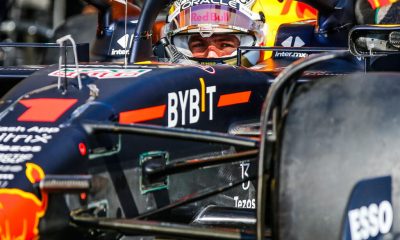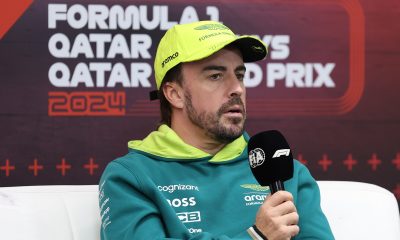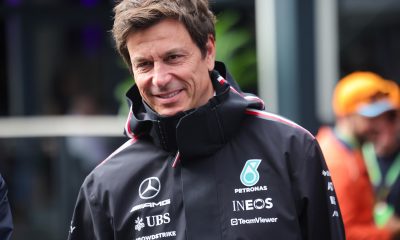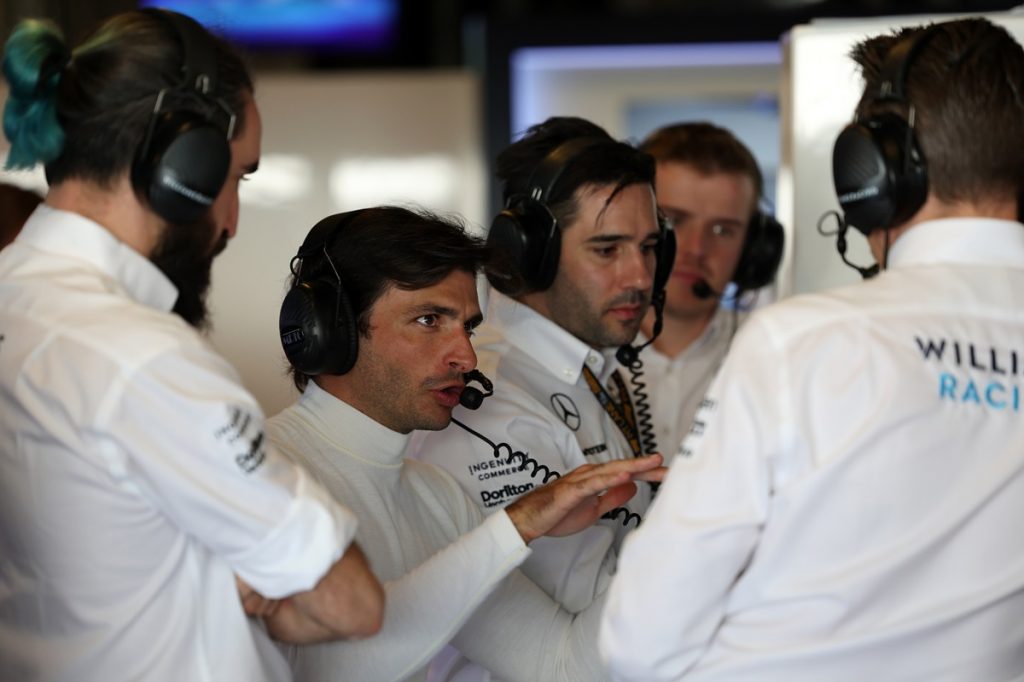Formula 1’s governing body has focused on cleaning up the sport’s image-not in terms of performance, but by regulating the drivers’ language.
The FIA’s approach includes hefty fines, race bans, and even threats to cut off team radio broadcasts if drivers use inappropriate language, even in moments of high emotion.
This crackdown, which gained traction following Max Verstappen’s penalty at the Singapore Grand Prix and Charles Leclerc’s fine after the Mexico City GP, has sparked backlash from the Grand Prix Drivers Association, which believes the regulations are excessively controlling.
Among those critical of the growing restrictions, Sainz and Albon have spoken out, advocating for a balance between professionalism and the unfiltered passion that makes motorsport so thrilling.
At the launch of the Williams FW47 on Friday at Silverstone, Albon was blunt when discussing the FIA’s position.
The Thai-British driver voiced concerns about the governing body’s attempts to monitor drivers’ language, both on and off the track.
“Of course, I think we deserve our say in our own things,” Albon remarked. “We don’t want this excessive control over our own opinions. I don’t think any sport has that.”
Albon’s frustration reflects a broader sentiment among drivers, who feel their voices are being muted in a sport where intensity and individuality are integral.
Sainz shared a balanced view, agreeing that drivers should maintain professionalism during public appearances but drawing a clear line when it comes to in-car communications.
“My opinion is that F1 drivers should be controlled enough during press conferences and media interactions not to swear,” the Spaniard explained.
“I think we should make an effort, especially when kids are watching us during press conferences or media events, to at least use appropriate language. That’s not too difficult.”
“So do we need fines or do we need to be controlled for that? I’m not sure, but I believe in always being well-spoken and polite in front of microphones and the media.”
While Sainz supports proper conduct outside the car, he objected to the FIA’s intervention regarding in-race communication, where adrenaline and pressure are at their peak.
“At the same time, do I think the FIA is overreaching with their control over radio communication during the race, considering the adrenaline and pressure we experience? Yes, I do,” Sainz said.
“For me, that’s a crucial part of the sport,” he added. “As long as it’s not offensive language toward anyone and it’s simply swearing out of emotion, I don’t think it should be overregulated. If it’s controlled too much, you’ll miss out on a lot of what we go through in the car.”
Sainz drew a parallel to other sports, pointing out F1’s unique intensity.
“Trust me, you wouldn’t want to have a microphone on a football pitch and hear what players are saying during the game, which is a comparable situation.”
Williams’ team principal, James Vowles, also backed his drivers’ point of view, reflecting on the FIA’s efforts to regulate language.
“We must recognize that there are moments we can address with individuals, but ultimately we’re dealing with situations that raise questions about whether drivers should or shouldn’t speak that way,” Vowles said.
“When you’re in the car under pressure, it’s natural to expect any human to respond emotionally because you’re putting your life at risk at extreme levels.”
“Outside of that, I also think we have a responsibility to the world.”
The key question now is whether the FIA will take this feedback into account, or if drivers will continue to let their silence-or swearing—speak for them.

























